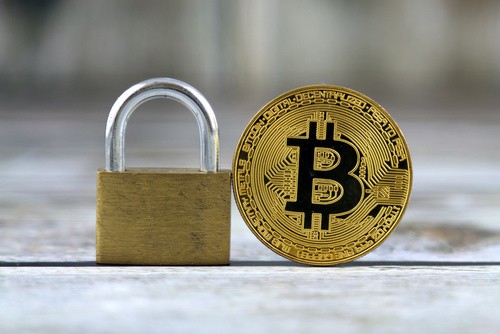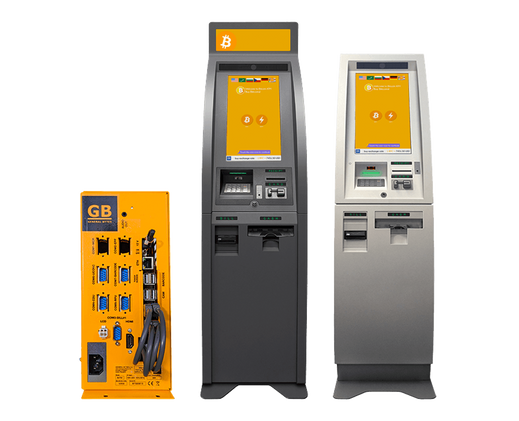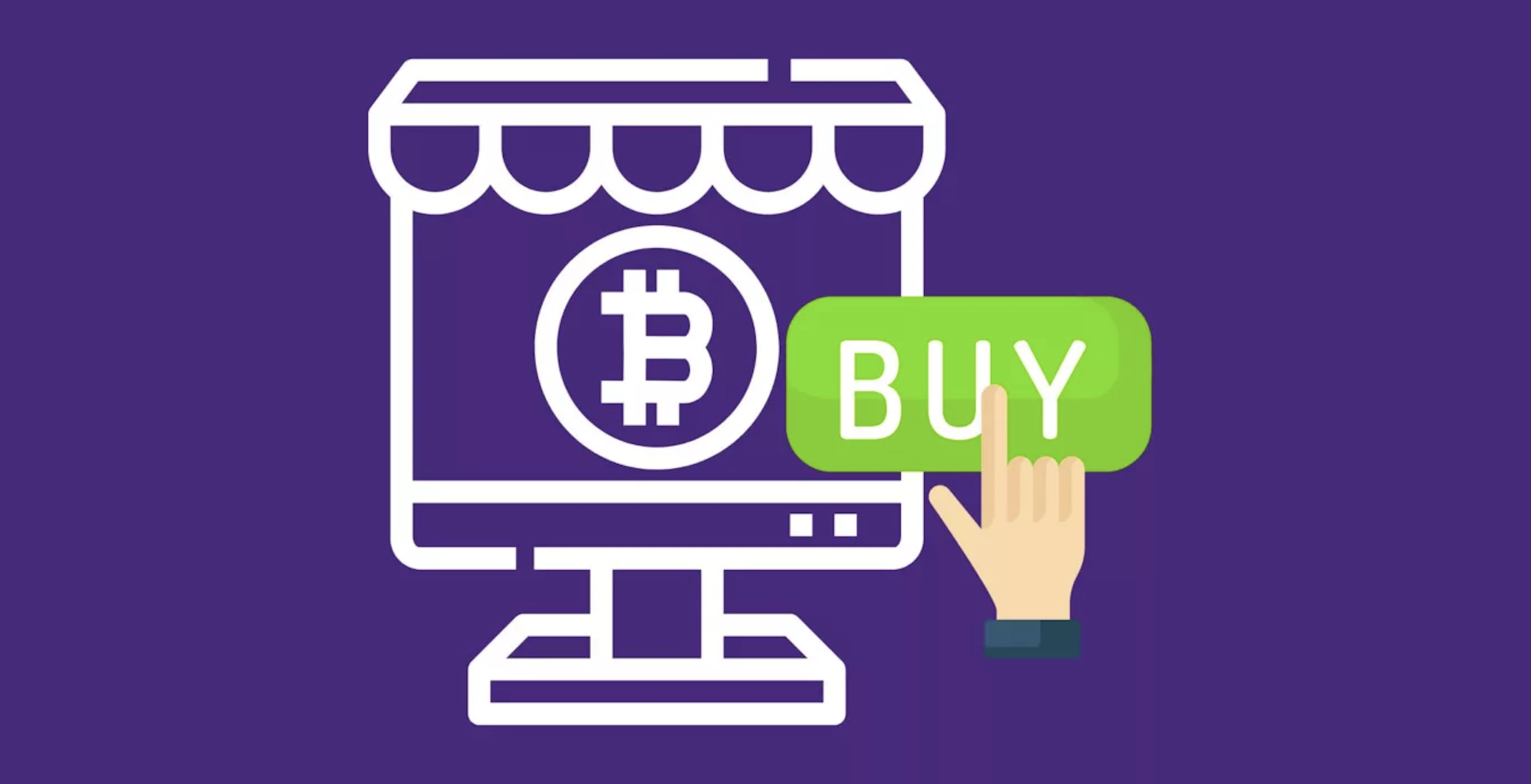
In the surging tide of the digital economy, Bitcoin (BTC), as the pioneer of decentralized technology and heralded as "digital gold," continues to capture the attention of investors worldwide. Its volatility, coupled with immense growth potential, has enticed countless individuals. However, the crucial question remains: how to Buy BTC in this market, which is full of opportunities yet also fraught with risks, and ensure the security of your investment. This is the core focus of this article – guiding you to invest in Bitcoin prudently, building a robust defense for your digital assets.
This article will provide you with a comprehensive and in-depth guide to buying Bitcoin, from foundational knowledge to advanced strategies, and from risk prevention to detailed precautions. Our aim is to help you wisely step into the crypto world, avoid common pitfalls, maintain stability amidst volatility, and ultimately secure your investment.
I. Why is Prudently Buying Bitcoin Crucial? Understanding Deeper Market Logic
Bitcoin's appeal lies in its decentralization, transparency, censorship resistance, and potential as a global store of value. However, it is also a relatively young and highly volatile asset class. Understanding the roots of its volatility is key to realizing why prudence is so vital.
1.The Ebbs and Flows of Market Cycles
The Bitcoin market exhibits clear cyclical patterns, often correlated with "Halving events" and broader macroeconomic cycles. During bull markets, prices can surge several or even dozens of times, fueling FOMO (Fear Of Missing Out); conversely, in bear markets, prices can plummet, triggering FUD (Fear, Uncertainty, Doubt).
-
The Lure of FOMO: When Bitcoin prices skyrocket, investors are often swayed by illusions of quick riches, blindly chasing highs and ignoring the risk of corrections.
-
The Erosion of FUD: When the market falls, panic selling can lead to further asset shrinkage, or even selling at lows, missing out on rebounds.
Being prudent means you won't be swayed by these emotions. You need to exercise your own judgment, not be disturbed by short-term fluctuations, and focus on long-term value.
2.The Multiplicity of Potential Risks
Beyond market volatility, Bitcoin investment faces various other risks:
-
Technical Risks: Blockchain vulnerabilities, smart contract flaws (while the Bitcoin network itself is highly secure, applications interacting with it may pose risks).
-
Security Risks: Exchange hacks, personal private key leaks, phishing websites, and malware.
-
Regulatory Risks: The regulatory landscape for cryptocurrencies globally remains unclear, and policy changes can significantly impact the market.
-
Liquidity Risk: Particularly for some niche tokens, it might be difficult to buy or sell quickly under certain circumstances.
In such an environment, a lack of prudent strategies and security awareness often leads to unnecessary losses. Only by acting prudently can one navigate this high-risk, high-reward market steadily and truly secure your investment.
II. Pre-Purchase Preparation for Buying Bitcoin: Laying the Secure Foundation
Before you begin the actual process of buying Bitcoin, thorough and meticulous preparation is the first step towards prudent investment, and it forms the cornerstone of protecting your assets.
1.Choosing the Right Trading Platform: Your Digital Asset Gateway
Selecting a secure, compliant, and reputable platform is crucial for your connection to the Bitcoin world. Different types of platforms have their own advantages and disadvantages:
-
Centralized Exchanges (CEX):
-
Examples: Binance, Coinbase, Kraken, OKX, etc.
-
Advantages: They typically offer extremely convenient fiat currency deposit methods (e.g., bank transfers, credit/debit cards), boast very high liquidity, ensuring your transactions are completed swiftly, and feature user-friendly interfaces with comprehensive functionalities (e.g., spot trading, futures trading, Staking, etc.). They also provide relatively complete customer service.
-
Disadvantages: You are required to undergo strict KYC (Know Your Customer) verification, meaning you must submit personal identification information (ID card, facial recognition, etc.) to comply with Anti-Money Laundering (AML) regulations. More importantly, your Bitcoin assets are custodied by the platform, not held by you with your own private keys, thus posing risks of platform hacks or malicious operations.
-
Prudent Advice: For beginners, it is highly recommended to start with reputable, regulated, and large CEXs that are globally ranked. Although KYC is required, it is for your asset security and compliance, and it serves as proof for recovering assets should account issues arise. Be sure to research the platform's history of security incidents and user reviews.
-
-
Decentralized Exchanges (DEX) and Peer-to-Peer (P2P) Platforms:
-
Examples: Uniswap (primarily Ethereum-based), PancakeSwap (primarily BSC-based) – these are generally not for native BTC. For BTC, P2P platforms like Hodl Hodl and Bisq are more common for no-KYC Bitcoin purchases.
-
Advantages: They offer higher privacy, and some platforms allow you to buy Bitcoin without KYC, directly transacting with peer users. Your funds are also secured by smart contracts or escrow services, rather than being controlled by a single entity.
-
Disadvantages: Operations are relatively complex, especially for beginners. Liquidity may be significantly lower than CEXs, leading to larger transaction slippage. Scam risks are higher, especially in P2P trading, where there's a risk of encountering malicious counterparties. They lack the customer service and dispute resolution mechanisms provided by CEXs.
-
Prudent Advice: If you are a beginner, it is not advisable to conduct large transactions on these platforms. If you choose to use them, be sure to thoroughly research the reputation of your trading counterparties and start with small amounts for testing. Understand that "no KYC" often comes with higher risks and fewer safeguards.
-

-
Bitcoin ATMs:
-
Advantages: Physical devices that accept cash for purchases, simple to operate, immediate Bitcoin acquisition, and small-amount transactions can be anonymous.
-
Disadvantages: Fees are typically high, reaching 5%-10% or even more; machine numbers and geographical locations are limited; single purchase amounts are usually restricted; and regulations for ATM machines are becoming increasingly strict globally, potentially requiring more KYC information in the future.
-
Prudent Advice: Only suitable for small, temporary needs or situations with extremely high privacy requirements.
-

2.Understanding and Choosing Your Crypto Wallet: Mastering Your Private Keys
Bitcoin is essentially a string of digital signatures recorded on the blockchain. The Bitcoin you purchase needs to be stored in a crypto wallet, which acts as your digital safe. Understanding the differences in wallet types and their security features is key to prudent investment.
-
Hot Wallets: Wallets that remain online, with private keys stored on internet-connected devices.
-
Types: Exchange account wallets (most common, but private keys are controlled by the exchange), mobile app wallets (e.g., Trust Wallet, Exodus, Phantom Wallet for Solana), desktop app wallets, browser extension wallets (e.g., MetaMask, Phantom).
-
Advantages: Convenient, quick, and easy for frequent transactions.
-
Disadvantages: Susceptible to hacking, malware infection, or loss of assets due to device loss/damage; generally lower security.
-
Prudent Advice: Use only for small amounts or Bitcoin intended for daily transactions. Ensure all available security settings, such as two-factor authentication, are enabled, and regularly update the software.
-
-
-
Types:
-
Hardware Wallets: E.g., Ledger, Trezor. These are specially designed physical devices where private keys are stored in an encrypted chip and never connect to the internet.
-
Paper Wallets: Private and public keys are printed on paper.
-
Deep Offline Wallets: Private keys are generated and stored on an offline computer.
-
-
Advantages: Extremely high security, effectively resistant to cyberattacks, viruses, and malware.
-
Disadvantages: Operations are relatively complex, not convenient for frequent transactions; physical loss or damage can lead to permanent loss of assets (if seed phrase is not properly backed up).
-
Prudent Advice: For large amounts or long-term holdings of Bitcoin, hardware cold wallets are strongly recommended. Your private key is the sole proof of ownership of your assets; it must be stored securely and never disclosed. Remember the most important crypto adage: "Not your keys, not your coins."Cold Wallets: Wallets that store private keys offline, considered the most secure storage method currently.
-
3.Funding and Initial Testing
Determine your deposit method and ensure the source of funds is legal and compliant. Common deposit methods include bank transfers, credit/debit cards, and third-party payments. Different methods come with varying fee rates and transfer speeds.
-
Prudent Advice: For your first Bitcoin purchase, it is recommended to start with a small amount to test the entire process, from depositing funds, buying, to withdrawing to your personal wallet. This helps you familiarize yourself with the operations and avoid significant losses due to operational errors.

III. Prudently Buying Bitcoin: Strategies and Best Practices
Once you have completed the basic preparations, the next step is to formulate and execute a prudent strategy for buying Bitcoin. This section is crucial for ensuring the success of your investment.
1. Prudent Market Analysis & Research (Research Prudently): Don't Be a Blind Investor
Before buying Bitcoin, it is imperative to DYOR (Do Your Own Research). Do not blindly trust any "insider information" or "analysts" on social media.
-
Understand Bitcoin's Fundamentals: Gain in-depth knowledge of its whitepaper, underlying technological principles (e.g., mining, consensus mechanisms), its scarcity (21 million limit), its potential as a store of value and hedge against inflation, and how it continues to evolve through network effects. Understanding these basics will help you maintain confidence during market fluctuations.
-
Monitor Macroeconomic Trends: Bitcoin's price is influenced not only by internal crypto market factors but also by global economics, inflation levels, central bank interest rate policies, geopolitical events, and institutional adoption by large corporations and funds. A prudent investor pays attention to these broader contexts to assess Bitcoin's position in the wider financial landscape.
-
Steer Clear of "Get Rich Quick" Promises and Scam Traps: Any investment promising fixed high returns (e.g., 1% daily), requiring recruitment of others, or claiming a "guru" can make you rich, is typically a scam. Prudentlyevaluate the risk-reward of any investment project and avoid blindly following trends.
-
Verify Information Sources: Differentiate between reputable news agencies, research reports, and speculative social media claims. Be especially wary of KOLs (Key Opinion Leaders) who only promote gains without mentioning risks. The extreme volatility of many Memecoins or other Crypto Projects often stems from rapid social media hype and short-term liquidity manipulation. A prudent investor maintains independent thinking and cross-verifies information.
2. Formulate an Investment Plan & Risk Management (Plan Prudently): Disciplined Investing
Prudent investing is inseparable from a clear plan and strict risk management. This is key to avoiding emotional trading and minimizing losses.
-
Dollar-Cost Averaging (DCA): Do not attempt to "bottom fish" or "all-in" in one go. By regularly (weekly, monthly) investing a fixed amount to buy Bitcoin, you can effectively average out your purchase cost, reducing the impact of market volatility and avoiding significant losses due to poor entry timing. This is one of the most prudentstrategies, especially suitable for long-term investors.
-
For example: Regardless of Bitcoin's price fluctuations, you invest 1000 Chinese Yuan monthly to buy Bitcoin. This way, you buy less when prices are high and more when prices are low, achieving an average cost over the long term.
-
-
Only Invest What You Can Afford to Lose: This is the golden rule of cryptocurrency investing. Bitcoin's volatility means your invested capital could significantly shrink in a short period. A prudent investor will never use retirement funds, down payments for property, emergency savings, or borrowed money to buy Bitcoin.
-
Set Take-Profit and Stop-Loss Points: Even for long-term holders, it's wise to set take-profit points for a portion of your holdings (e.g., 20%-30%). This allows you to lock in profits when a target price is reached. Conversely, setting stop-loss points can limit potential losses, preventing "liquidation" or excessive losses. This demonstrates trading discipline.
-
Understand Portfolio Allocation: Determine a sensible proportion for Bitcoin within your overall investment portfolio. Consider pairing it with other digital assets like Stablecoins for stability or traditional assets to diversify risk.
3. Security Measures (Secure Prudently): Protecting Your Digital Fortress
When trading and storing Bitcoin, security is paramount. Any oversight can lead to irreversible losses.
-
Enable Two-Factor Authentication (2FA): For both exchange accounts and your crypto wallets, it is essential to enable 2FA.
-
Most Recommended: Hardware keys (like YubiKey) or authenticator apps (like Google Authenticator, Authy).
-
Not Recommended: Relying solely on SMS verification codes, due to higher SIM swap risks.
-
-
Guard Against Phishing Websites and Malware: Always access exchanges and wallets through official channels (official websites, official apps). Be wary of suspicious websites sent via email, social media, SMS, or unknown links. Before clicking any link, always carefully verify the URL. Any request for your private key or seed phrase is 100% a scam!
-
Use Strong Passwords and a Password Manager: Set unique, complex, and randomly generated passwords for all your crypto-related accounts. Consider using a professional password manager to store and manage these passwords. Regularly change important account passwords.
-
Beware of Unsolicited Airdrops and IDO (Initial DEX Offering) Scams: Airdropped tokens from unknown sources may contain malicious contracts; interacting with them could lead to wallet draining. Exercise caution when participating in any IDO project, and be wary of fraudulent projects.
-
Regular Account Review and Software Updates: Periodically check your transaction history and wallet addresses to ensure no unusual activity. Keep your operating system, browser, wallet software, and exchange apps updated to the latest versions to patch known security vulnerabilities.
IV. Post-Purchase Asset Management and Tax Considerations
Prudent investment extends beyond the purchase process; it is equally crucial in post-purchase asset management and compliance. This relates to your long-term wealth accumulation and legal responsibilities.
1.Asset Management: Diversification and Continuous Learning
-
Balancing HODLing with Short-Term Trading: HODL (Hold On for Dear Life) is a popular Bitcoin investment strategy of holding long-term without being affected by short-term fluctuations. For prudent investors, HODLing often yields more stable long-term returns. However, you can also engage in a small amount of short-term trading based on your risk tolerance and market judgment.
-
Portfolio Diversification: Even if you are bullish on Bitcoin, you should not put all your funds into it. A prudentinvestor will consider diversifying within the cryptocurrency space (e.g., allocating some funds to other major coins like Ethereum, or holding some Stablecoins for stability) and even across traditional assets (stocks, bonds, real estate) to mitigate risk.
-
Continuous Learning and Staying Informed: The cryptocurrency world is rapidly evolving. New coins, new Tokenomics models, new technological breakthroughs (like blockchain upgrades), and changing regulatory policies emerge constantly. A prudent investor continuously enhances their knowledge by subscribing to reliable industry news sources, participating in high-quality community discussions, and reading professional analysis reports.
2.Tax and Compliance: An Unignorable Responsibility
-
Understand Local Regulations: Many countries and regions have classified cryptocurrencies as assets or property, and gains from trading, mining income, Staking rewards, etc., may be subject to income tax or capital gains tax. Ignoring tax obligations can lead to severe legal consequences and penalties. A prudent investor will actively seek to understand and comply with local cryptocurrency tax policies.
-
Detailed Record-Keeping of All Transactions: This is an extremely important prudent habit. Whether it's buying, selling, trading, receiving Airdrops, or Staking, you should meticulously record the transaction date, time, amount, platform, fees, and purpose. This is crucial for future audits and tax filings. Consider using specialized crypto tax software or spreadsheets for record-keeping.
-
Seek Professional Advice: If your cryptocurrency investments are substantial or your transactions are complex, it is strongly recommended to consult a professional tax advisor or accountant, especially those with in-depth knowledge of cryptocurrency taxation.
V. Conclusion: Buy BTC Prudently, Win the Digital Future

Buying Bitcoin (Buy BTC) is an exciting step into the forefront of digital finance. However, the key to success lies in your ability to approach this market prudently. This means not being swayed by short-term fluctuations, not being tempted by "get rich quick" stories, but rather focusing on long-term value, and always prioritizing risk management, asset security, and compliance.
By choosing reliable trading platforms, securely storing your digital assets, and adopting a range of prudent investment strategies (like DCA), you can not only secure your investment but also claim a solid and promising digital asset in this dynamic digital era. Remember, to Buy BTC Wisely is the cornerstone of your successful journey into the crypto world and a guarantee for achieving long-term wealth growth.












